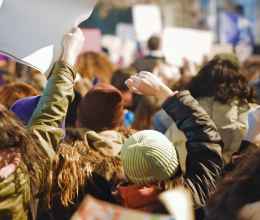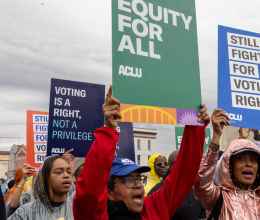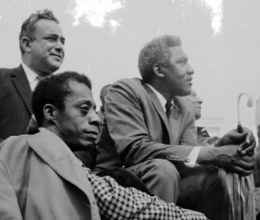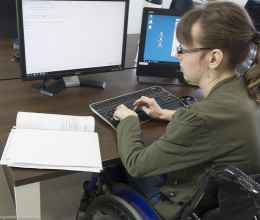
This op-ed was also published in Tallahassee Democrat.
Florida’s near-total abortion ban is not an isolated policy—it is a strategic move in a broader, coordinated assault on women’s rights, with the heaviest burdens falling on Black and Brown communities. These communities are already on the frontlines of a healthcare system riddled with inequities, and this ban exacerbates their struggles, intensifying the existing disparities in access to reproductive healthcare.
Black and Brown women are disproportionately affected by restrictive reproductive laws, largely because they are more likely to lack health insurance, live in areas with limited medical resources, and encounter bias and discrimination from healthcare providers. The cumulative effect of these disadvantages means that, for many women in these communities, the abortion ban is not just a legal obstacle—it is a direct threat to their lives.
The ban forces women into perilous situations. Without access to safe and legal abortion services, some may resort to dangerous, unregulated methods to end their pregnancies, risking severe health complications or even death. The fear of legal repercussions, combined with the stigma surrounding abortion, can drive women to desperate measures, further endangering their lives. Those who are unable to obtain an abortion are compelled to carry pregnancies to term, often under conditions of extreme economic hardship. For these women, the prospect of raising a child in the face of financial instability, inadequate healthcare, and systemic discrimination can perpetuate cycles of poverty and inequality, trapping them in a relentless struggle for survival.
The impact of these laws extends beyond economic and healthcare barriers. Black and Brown women often navigate multiple layers of marginalization that intersect and amplify their vulnerability. For undocumented women, the fear of deportation can make accessing healthcare services, including abortion, nearly impossible. LGBTQ+ individuals, particularly transgender and non-binary people, face additional barriers due to a lack of culturally competent care and widespread discrimination. Women living with disabilities encounter physical and attitudinal obstacles that further limit their access to reproductive healthcare. For these women, the near-total abortion ban compounds the systemic discrimination they already face, making it even harder to exercise their rights and protect their health.
This broader war on women’s rights is not just an attack on reproductive freedom—it is an assault on the very humanity of women, particularly those who are most marginalized. It is a calculated effort to maintain control over the bodies and lives of Black and Brown women, to limit their autonomy, and to silence their voices. The laws that restrict access to abortion are part of a larger agenda that seeks to reinforce racial and economic hierarchies, keeping Black and Brown communities in a state of perpetual vulnerability.
In this context, the fight for Reproductive Justice becomes a fight for survival. It is a movement that demands more than just the right to choose—it demands the right to live with dignity, to have access to the full spectrum of reproductive healthcare, and to make decisions about one’s body without fear of punishment or discrimination. The Reproductive Justice movement recognizes that true freedom can only be achieved when all women, regardless of their race, immigration status, sexual orientation, or ability, are empowered to exercise their rights fully and without constraint.
This broader war on women’s rights calls for a unified and intersectional response. It requires that we not only oppose restrictive abortion laws but also address the systemic injustices that make these laws so devastating for Black and Brown communities. It is a call to action for all who believe in equality, justice, and the right to self-determination—a call to stand in solidarity with the women who are fighting for their lives against a system that seeks to control them. The reproductive justice movement is not just about protecting a single right; it is about transforming a society that has long denied women of color their full humanity and ensuring that all women have the power to shape their own futures.




